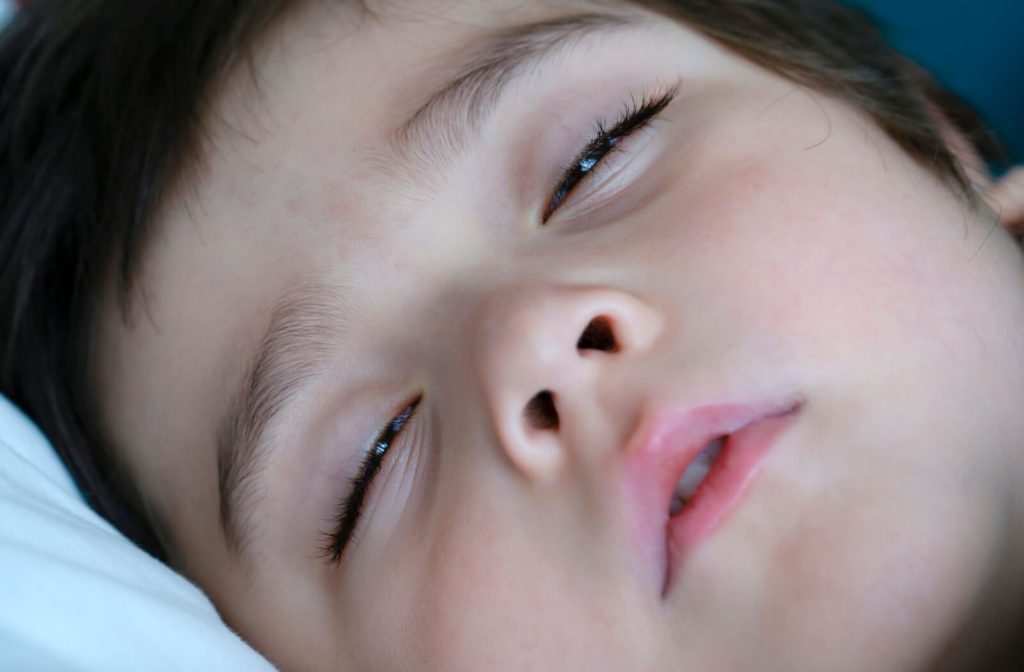If you wake up in the morning with an itching or burning sensation in your eye, you may be dealing with dry eye syndrome.
Dry eye syndrome, commonly referred to as dry eyes or dry eye disease, often feels like a sandy or gritty sensation in your eyes. It’s one of the more common complaints heard by eye care professionals, and millions of Americans deal with dry eye syndrome in their day-to-day lives.
Fortunately, there are many treatment and therapy options available. However, the best way to address dry eye syndrome is to book an eye exam with an optometrist so they can tailor an eye care plan to suit your needs.
What is Dry Eye Syndrome?
Dry eye syndrome can be described as an itching, burning, or gritty sensation in the eyes. Though there are many causes for it, the most common is an issue with your eye’s tear production.
Every time you blink, your eye naturally spreads a thin layer of tears over the surface of your lens. These tears keep your eyes lubricated and hydrated while allowing your eye to absorb oxygen through the air around you.
These tears are made of three layers: a water layer, an oil layer, and a mucus layer.
- The water layer hydrates your eye and keeps bacteria from entering. This makes up most of your tears
- The mucus layer disperses tears evenly across the surface of your eye while keeping them on the lens
- The oil layer keeps these two layers from evaporating too quickly while keeping tears smooth so your eye can clearly see
If there’s an imbalance in the distribution of these three layers, it can lead to tears being too poor quality to properly do their job. And when the tears aren’t doing their job, your eyes may begin feeling dry.

Why Am I Waking Up With Dry Eye?
Dry eye syndrome can be caused by many different factors.
The most common cause of dry eye syndrome is the issue with tear quality or production described above, but it can also be caused by certain medical problems, the environment around you, and even certain prescription medications or contact lenses.
What medical problems can cause dry eye syndrome?
- Nocturnal lagophthalmos: This is when your eyes don’t fully close while you sleep, leading to your eyes drying out while they should be hydrating and resting
- Diabetes: More than 54% of people with diabetes develop dry eye syndrome. This is due to diabetes’ effect on the lacrimal gland—a part of your eye that creates parts of your tears and helps stop them from evaporating.
- Sjögren’s syndrome: This is when your immune system attacks healthy organs and tissue. It can attack the parts of your eyes that control tear production.
- Grave’s disease or other thyroid issues: The thyroid controls hormone production. If there is an issue with your thyroid, it can produce too many or too few hormones necessary for tear production.
It’s important to note that these are not all the medical causes of dry eyes. It’s recommended to have a comprehensive eye exam performed by an eye care professional about once a year to ensure that your eyes are healthy.
What environmental factors can cause dry eyes?
Dry eyes can be made worse by many environmental factors.
For example, if you work at a computer, this can be one of the causes of dry eyes. Digital screens emit a wavelength known as blue light that directly affects your body’s natural production of melatonin. If you find yourself waking up with dry eyes every morning, try to reduce your screen time in the evenings.
Humidity and airflow can also directly affect your eyes. In a particularly dry, hot, or windy environment, your body has to produce more tears to keep your eyes moist and lubricated. This can strain them and cause problems with your tear production.
If you wear contact lenses, these can be the cause of your dry eye syndrome. In fact, over 50% of contact lens wearers report suffering from dry eye syndrome.
Your eyes naturally absorb oxygen through the surface of your cornea—directly where some contact lenses sit. Though contact lens technology has evolved rapidly over the years, many still can’t allow 100% of the oxygen through. Softer lenses can also absorb water from your tears themselves, leaving your eyes drier than before.
Other factors that can cause dry eyes include:
- Regularly smoking tobacco
- Smoky or dusty environments
- Prescription medications (always read the label to see if this may be causing your dry eyes, or ask your pharmacists or doctor)
- Hormone changes
- Dehydration
What to do About Dry Eyes
If you find yourself struggling with dry eye syndrome, it’s important to schedule a comprehensive eye exam with an optometrist so they can properly diagnose and address any problems. Though dry eyes can be frustrating to deal with, there are many solutions available! At Eye Care Center of Colorado Springs, we’ll customize an eye care treatment plan that can ensure your dry eyes are properly addressed.
Book an appointment today to speak with one of our experienced professionals and take charge of your dry eye syndrome!


